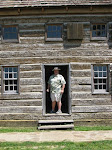The Wexford Carol, originating in 12th century Ireland, is one of the oldest carols in the Christian world.
The complete lyrics...
Good people all, this Christmas time,
Consider well and bear in mind
What our good God for us has done
In sending his beloved son
With Mary holy we should pray,
To God with love this Christmas Day
In Bethlehem upon that morn,
There was a blessed Messiah born
The night before that happy tide
The noble Virgin and her guide
Were long time seeking up and down
To find a lodging in the town
But mark right well what came to pass
From every door repelled, alas
As was foretold, their refuge all
Was but a humble ox's stall
Near Bethlehem did shepherds keep
Their flocks of lambs and feeding sheep
To whom God's angel did appear
Which put the shepherds in great fear
Arise and go, the angels said
To Bethlehem, be not afraid
For there you'll find, this happy morn
A princely babe, sweet Jesus, born
With thankful heart and joyful mind
The shepherds went the babe to find
And as God's angel had foretold
They did our Saviour Christ behold
Within a manger he was laid
And by his side a virgin maid
Attending on the Lord of Life
Who came on earth to end all strife
There were three wise men from afar
Directed by a glorious star
And on they wandered night and day
Until they came where Jesus lay
And when they came unto that place
Where our beloved Messiah lay
They humbly cast them at his feet
With gifts of gold and incense sweet.


























.jpg)





